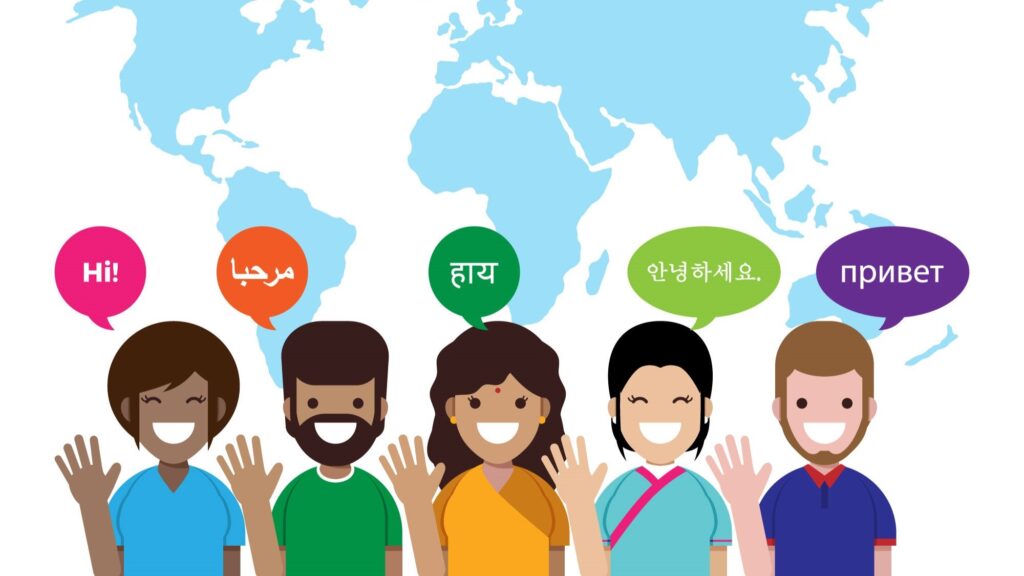
The e-learning industry is projected to reach $457.8 billion by 2026. Increasingly, organizations are investing in learning online to enable employees to acquire new skills. However, it is essential to note that 93% of businesses believe training becomes most effective when it is culturally relevant. This is where e-learning localization plays an important role. But what exactly is localization? It is just rephrasing the content to fit the language, culture, and requirements of the target audience.
In business training, localizing e-learning services and courses enables employees around the globe to better understand the material. They learn more, grasp concepts faster, and work more effectively. In this blog, we will explore why e-learning localization is important for corporate training and go through real-life examples to show how it makes a big difference.
1. Increases Employee Engagement and Learn Better
Employees can learn more effortlessly when the training content is created using their native language and feels familiar to their culture. Some studies indicate that localized content increases knowledge retention rates by up to 75% as compared to the generic English-only courses.
For example, A global IT company created a localized e-training portal for its teams across Asia. They added local case studies and examples that resonated with people in that region. This resulted in course completion rates increasing by 60%.
2. Ensures Compliance with Local Regulations
Each nation has its own unique legal and compliance requirements, which is important for creating the corporate training content accordingly. Software Localization in e-learning ensures everything complies with the regulations and data privacy policies..
Example: A large pharmaceutical corporation localized its e-learning platform for EU employees. They included GDPR (data privacy) training in various languages. It kept the company from avoiding legal risks and ensured everyone was compliant with local policies.
3. Boosts Productivity and Performance
When training is comfortable and aligns with the employee’s cultural and professional background, they are more likely to comprehend it and utilize their learning which leads to fewer errors and improved performance in the job.
Example: A customer service company used localized e-learning modules for its multilingual call center teams. Following this, customer satisfaction increased by 45% since the agents could communicate more efficiently with clients in their local languages.
4. Supports Global Workforce Expansion
Whenever businesses expand in foreign countries, it is important that training for all must be accessible and relevant, regardless of where they happen to be located. Localized content enables new hires to learn quickly and adapt effectively into the corporate culture.
Example: A large retail brand began opening locations in Latin America. They localized its e-training portal with Spanish content. The outcome? Faster onboarding times and a 30% increase in employee retention rates.
5. Reduced Training Costs and Time
Many companies think training in English saves money. However, poor comprehension leads to increased retraining costs. By investing in localization, companies reduce misunderstandings, minimize errors, and lower retraining expenses.
For example, A manufacturing company started using localized safety training videos for its non-English-speaking employees. This led to 25% fewer workplace accidents, which saved money on fines and medical bills.
6. Why is E-learning Localization Important?
Localization makes sure that corporate training is not just translated but also culturally adapted to appeal to employees globally. A one-size-fits-all strategy in training tends to result in low participation and inefficiency, while localized training makes employees feel more connected and valued.
Benefits include:
- Better comprehension and engagement using culturally appropriate content.
- Increased training efficiency through content designed specifically for target markets.
- Stronger brand reputation by demonstrating commitment to inclusivity and diversity.
- Higher return on investment (ROI) by enhancing employees’ performance and retention.
- Enhanced compliance and risk management by aligning training with local laws.
- Greater workforce adaptability by addressing learning styles and preference differences.
- Optimized training delivery through localizing UI, subtitles, and voiceovers.
Why Choose VerboLabs for E-learning Localization?

VerboLabs is a high-quality e-learning localization services company with known expertise in corporate training. Our team ensures that your training materials are not just translated but fully localized to address the cultural, linguistic, and regulatory differences of your international workforce, making the content relevant for your audience.
Why VerboLabs?
- Expert Linguists: Native speakers ensure accuracy and cultural sensitivity.
- Comprehensive Localization: Not only is text adapted, but multimedia, UI, and training resources are, too.
- Industry-specific Solutions: Expertise in corporate training, healthcare, IT, and more.
- Seamless Integration: Facilitating easy implementation across e-learning platforms and e-training portals.
Investing in the localization services of VerboLabs is essential and helpful as it equips your team with effective, engaging, and impactful corporate training.
Conclusion
In today’s globalized corporate world, e-learning localization is no longer a luxury; it’s a necessity. From enhancing engagement and ensuring compliance to boosting productivity and reducing costs, localized e-learning content adds to business success.
VerboLabs is an expert in e-learning localization, ensuring your corporate training reaches the intended audience with accuracy. Ready to globalize your training? Contact us today to begin!

Globalize your training programs—partner with VerboLabs for expert e-learning localization that drives engagement and compliance.



